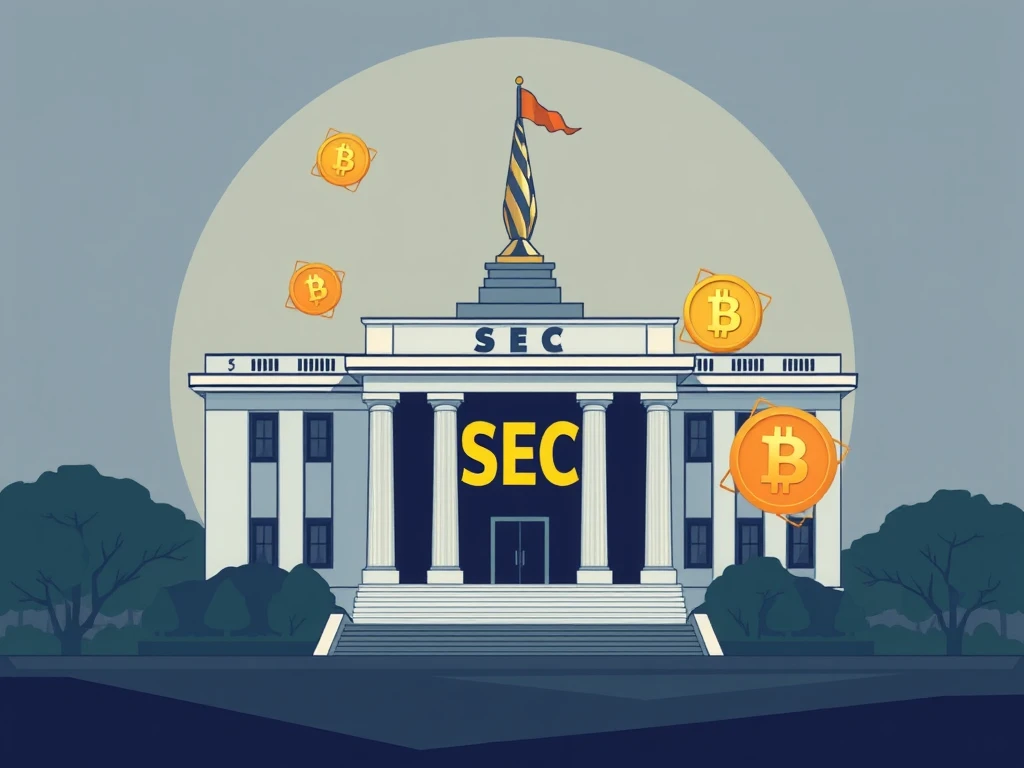Thai SEC Proposes Crucial Token Issuance Rules for Crypto Market

The regulatory landscape for digital assets is constantly evolving, and the latest development comes from Thailand. The Thai SEC, the country’s Securities and Exchange Commission, has taken a significant step towards clarifying guidelines for the burgeoning digital asset sector by opening a public consultation period. This move is specifically focused on proposed token issuance rules, aiming to create a more structured and secure environment for both issuers and investors within the Thailand crypto market.
Thai SEC Seeks Feedback on Proposed Token Issuance Rules
Thailand’s Securities and Exchange Commission announced on Friday that it has initiated a consultation period to gather feedback on proposed rules governing the issuance of utility tokens. These new regulations would specifically apply to exchanges or individuals who are connected to an exchange and wish to issue such tokens.
Key aspects of the proposed framework include:
- **Disclosure Requirements:** Exchanges or connected parties involved in token issuance would be required to disclose the names of individuals associated with the token issuers. This transparency is intended to provide the SEC with better visibility into potential conflicts of interest.
- **Monitoring for Insider Trading:** By requiring disclosure of associated parties, the SEC aims to enhance its ability to monitor for signs of insider trading crypto activities related to new token listings or issuances.
- **Part of Broader Regulatory Efforts:** These proposed rules are not isolated; they are part of Thailand’s ongoing efforts to establish a comprehensive and clear regulatory framework for the entire crypto industry.
Strengthening Crypto Regulation in Thailand
The move to clarify token issuance rules underscores Thailand’s commitment to developing robust crypto regulation Thailand. The country has seen a flurry of regulatory activity recently, reflecting a desire to balance innovation with investor protection and market integrity.
Recent regulatory actions in Thailand include:
- Plans announced in May to potentially allow tourists to use crypto via credit cards, signaling an openness to integrating digital assets into the economy.
- Shortly after, blocking unlicensed exchanges like OKX and Bybit due to concerns over unlicensed operations and potential money laundering risks.
- Announcing a waiver on capital gains tax for crypto sales conducted through licensed service providers, aiming to encourage regulated activity.
These varied actions highlight the dynamic nature of regulating a rapidly evolving space like cryptocurrency. The proposed token issuance rules fit into this larger picture of establishing clear boundaries and requirements for market participants.
Addressing Insider Trading in the Thailand Crypto Market
One of the explicit goals of the proposed rules is to help the Thai SEC monitor for insider trading crypto. This is a significant concern within the digital asset space globally, and Thailand has had its own experiences with it.
In 2022, the Thailand crypto market was impacted by an alleged insider trading scandal involving Bitkub, one of the country’s largest exchanges. The SEC alleged that the chief technology officer used non-public information to purchase tokens just before a major deal was announced, highlighting the potential for abuse when information is not equally available to all market participants.
Global Examples of Insider Trading Crypto Cases
The risk of insider trading crypto is not unique to Thailand. Several high-profile cases around the world demonstrate the challenges regulators face in this area:
- **OpenSea (2021):** An employee was accused of using insider knowledge about which NFTs would be featured on the homepage to purchase them beforehand. The employee was later convicted of wire fraud and money laundering.
- **Coinbase (2022):** Three individuals, including a former employee, were charged with insider trading related to listing announcements on the exchange. Two received prison sentences.
- **Binance (2024):** The exchange suspended a staffer following an investigation into alleged insider trading activity.
- **Trump Memecoin:** Allegations of unusual wallet behavior sparked discussions and analysis regarding potential insider trading related to the Official Trump (TRUMP) memecoin.
These examples underscore why the Thai SEC is focusing on disclosure and monitoring as part of its new token issuance rules. Ensuring a fair market requires vigilance against those who would exploit privileged information.
Conclusion
The consultation period for Thailand’s proposed token issuance rules represents a proactive step by the Thai SEC to bring greater clarity and integrity to the Thailand crypto market. By focusing on transparency and monitoring for potential insider trading crypto activities, these rules aim to build confidence and foster responsible growth in the digital asset ecosystem. Feedback from industry participants during this consultation will be crucial in shaping the final regulations that will govern how tokens are issued and traded in the country.










